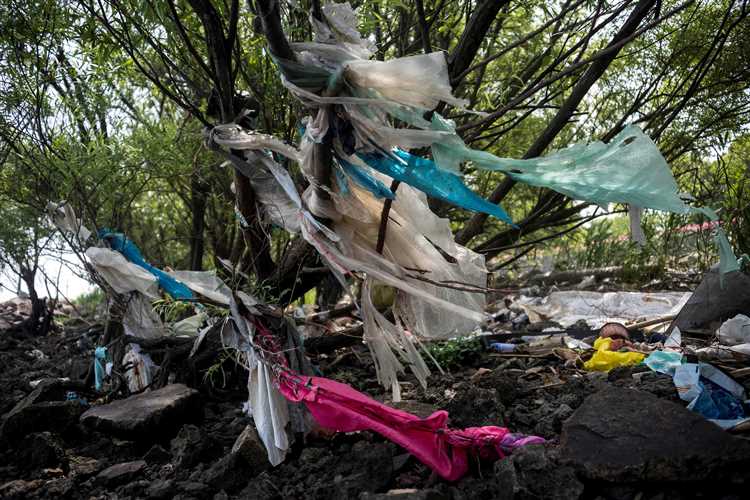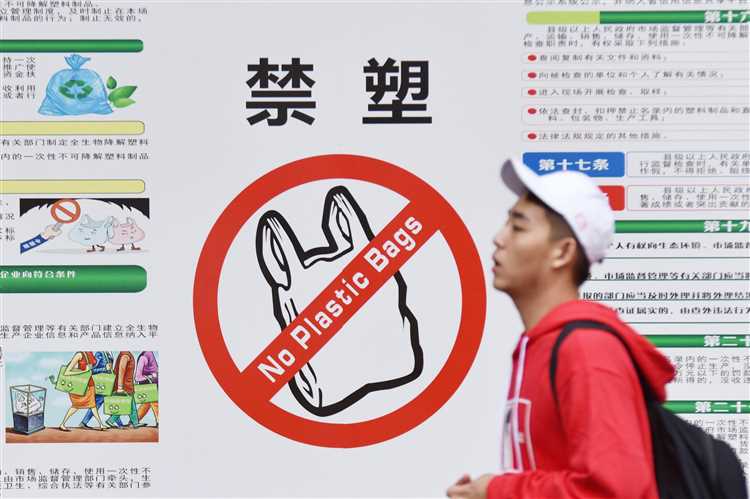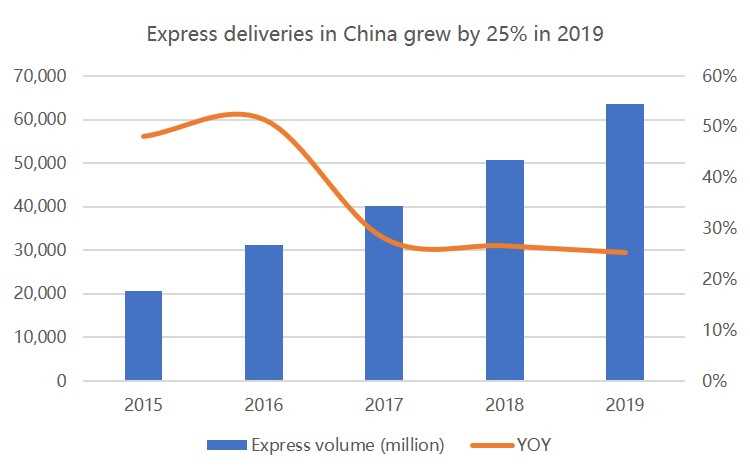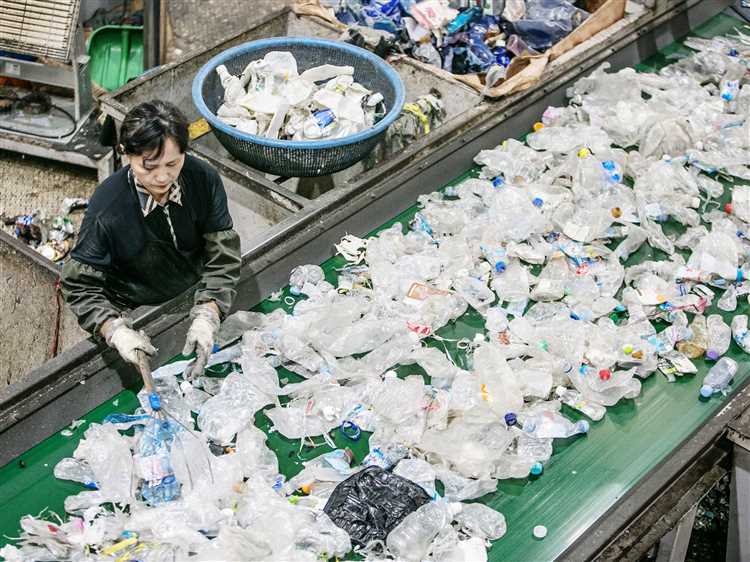Plastic bags have become a ubiquitous part of our daily lives, and China is no exception. In fact, China’s plastic bag usage has skyrocketed in recent years, making it one of the largest consumers of plastic bags in the world. This comprehensive overview delves into the reasons behind China’s high plastic bag consumption, the environmental impact it has had, and the measures the country has taken to address this pressing issue.
China’s rapid economic development and booming population have contributed to the country’s heavy reliance on plastic bags. With a rapidly growing middle class and increased consumerism, the demand for plastic bags has surged. These bags are convenient, cheap, and lightweight, making them a preferred choice for many shoppers. However, the sheer volume of plastic bags being used in China has raised concerns about their disposal and the long-term consequences for the environment.
The detrimental impact of China’s plastic bag usage on the environment cannot be overstated. Plastic bags take hundreds of years to decompose, and when they end up in landfills or bodies of water, they release harmful chemicals and pose a significant threat to wildlife. China’s rivers and coastal areas have been particularly affected, with plastic bags clogging up waterways, suffocating marine life, and disrupting delicate ecosystems. The need to address this issue has become increasingly urgent as the consequences of plastic bag pollution continue to unfold.
The Chinese government has recognized the severity of the plastic bag problem and has taken steps to combat it. In 2008, China implemented a nationwide ban on ultra-thin plastic bags and imposed fees on thicker bags. This move led to a noticeable reduction in plastic bag consumption, but the problem persisted due to a lack of enforcement and loopholes in the regulations. In response, the government further tightened restrictions in 2020 and imposed stricter penalties on violators.
While China’s efforts to reduce plastic bag usage are commendable, there is still much work to be done. Public awareness campaigns about the environmental impact of plastic bags are crucial, as is the promotion of sustainable alternatives such as reusable bags. Long-term solutions, such as investing in recycling infrastructure and fostering a circular economy, are also necessary to tackle the root causes of plastic bag consumption in China.
In conclusion, China’s plastic bag usage is a complex issue that requires multi-faceted solutions. By understanding the reasons behind China’s high consumption, acknowledging its environmental impact, and supporting the government’s efforts, we can work towards a future where plastic bags are no longer a burden on the planet.
- The History of Plastic Bags in China
- The Environmental Impact of Plastic Bag Usage in China
- Efforts to Reduce Plastic Bag Usage
- Government Regulations and Initiatives to Reduce Plastic Bag Usage in China
- Ban on Thin Plastic Bags
- Mandatory Costs for Plastic Bags
- Question-answer
- Why is plastic bag usage so high in China?
- What are the negative impacts of plastic bag usage in China?
- Has China taken any steps to reduce plastic bag usage?
- Are there any alternatives to plastic bags that are being used in China?
- What role can individuals play in reducing plastic bag usage in China?
- What is the current plastic bag usage in China?
- Has China taken any measures to reduce plastic bag usage?
The History of Plastic Bags in China

Plastic bags have been an integral part of China’s consumer culture for several decades. The use of plastic bags in China began to increase significantly during the economic reforms of the 1980s.
Before the widespread use of plastic bags, traditional materials such as cloth and paper were commonly used for packaging and carrying goods. However, the convenience and affordability offered by plastic bags quickly made them popular among both consumers and businesses.
In the early years, plastic bags were primarily used by supermarkets and department stores. As the demand increased, plastic bags quickly became a common sight in local markets, convenience stores, and street vendors.
By the late 1990s, plastic bags had become a major environmental concern due to their negative impact on the ecosystem. They were clogging drains, polluting water bodies, and causing harm to wildlife. In response to this, the Chinese government implemented several measures to regulate the use of plastic bags.
In 2008, China introduced a nationwide ban on ultra-thin plastic bags that were less than 0.025 millimeters thick. The ban aimed to reduce plastic waste and promote the use of reusable bags. The government also encouraged the use of biodegradable bags as an alternative.
Despite these efforts, plastic bags continue to be widely used in China. The convenience and low cost of plastic bags make them a popular choice for consumers, especially in smaller cities and rural areas where alternatives may not be readily available.
In recent years, however, there has been an increasing awareness of the environmental impact of plastic bags. Many Chinese cities have implemented stricter regulations on plastic bag usage, including charging fees for each plastic bag or completely banning their use in certain areas.
China has also taken steps towards the promotion of reusable bags and other eco-friendly alternatives. Some cities have implemented incentives or subsidies for businesses and consumers to switch to reusable bags.
As China continues to grapple with the issue of plastic bag usage, finding a balance between convenience and environmental sustainability remains a challenge. Efforts to reduce plastic bag usage and promote environmentally friendly alternatives are crucial for China’s long-term ecological well-being.
The Environmental Impact of Plastic Bag Usage in China

Plastic bags have become an integral part of daily life in China, with a staggering consumption rate of billions of bags per year. However, the convenience they offer comes at a great cost to the environment.
The production of plastic bags in China relies heavily on fossil fuels, particularly crude oil. The extraction and refining of oil create significant carbon emissions, contributing to global climate change and air pollution. Furthermore, the manufacturing process itself requires large amounts of energy and water, further depleting natural resources.
Once used, plastic bags often end up in landfills, where they can take centuries to decompose. Not only do they occupy valuable land space, but they also release harmful toxins into the soil, water, and air. These toxins can then find their way into the food chain, posing a threat to both human and animal health.
Plastic bags also have a devastating impact on marine life. Many bags are improperly disposed of and end up in rivers and oceans, causing harm to marine species. Sea turtles, dolphins, and other marine animals often mistake plastic bags for food, leading to choking, suffocation, and even death. Additionally, plastic bags can entangle marine organisms, hindering their movement and causing injuries.
The environmental consequences of plastic bag usage extend beyond wildlife and ecosystems. Plastic contamination is a significant concern for agriculture in China, as plastic bags can contaminate soil and inhibit crop growth. This can have devastating effects on food production and the livelihoods of farmers.
Efforts to Reduce Plastic Bag Usage
In recent years, the Chinese government has recognized the urgent need to address the environmental impact of plastic bag usage. In 2008, it implemented a nationwide ban on free plastic bags in supermarkets and stores, requiring customers to pay for each bag. This measure has significantly reduced the consumption of plastic bags and raised public awareness about the issue.
Furthermore, China has been actively promoting the use of reusable bags and encouraging consumers to adopt more sustainable alternatives. Various initiatives and campaigns have been launched to promote eco-friendly practices and raise awareness about the negative impacts of plastic bags.
While progress has been made, there is still much work to be done to eliminate plastic bag usage altogether. Ongoing efforts from the government, businesses, and individuals are necessary to create a more sustainable future and protect China’s environment for generations to come.
Government Regulations and Initiatives to Reduce Plastic Bag Usage in China

In recent years, China has implemented several government regulations and initiatives to address the issue of plastic bag usage. These measures are aimed at reducing the negative environmental impact of single-use plastic bags and promoting the use of more sustainable alternatives.
Ban on Thin Plastic Bags
One of the key regulations implemented by the Chinese government is a ban on the production, sale, and use of ultra-thin plastic bags with a thickness of less than 0.025 millimeters. This ban, which was introduced in 2008, has been essential in reducing the consumption of lightweight plastic bags, which are often discarded after a single use.
Mandatory Costs for Plastic Bags

In addition to the ban on thin plastic bags, the Chinese government has also introduced mandatory fees for plastic bags in supermarkets, shopping malls, and other retail outlets. Customers are required to pay a small fee for each plastic bag they request, encouraging them to bring their own reusable bags and reducing the demand for single-use plastics.
Public Awareness Campaigns
To further promote a shift away from plastic bag usage, the Chinese government has launched public awareness campaigns to educate citizens about the negative environmental impacts of plastic bags. These campaigns utilize various media channels, such as television, radio, and social media, to reach a wide audience and encourage behavior change.
Alternative Packaging Options
The Chinese government has also been actively promoting the use of alternative packaging options, such as paper bags and biodegradable bags, as substitutes for single-use plastic bags. This includes working with manufacturers to develop more sustainable packaging materials and providing incentives for businesses to use these alternatives.
Overall, the Chinese government’s efforts to reduce plastic bag usage have had a significant impact on both consumer behavior and industry practices. While challenges remain in enforcing regulations and changing long-standing habits, the combination of government regulations, public awareness campaigns, and the promotion of alternative packaging options are crucial steps in addressing the issue of plastic bag usage in China.
Question-answer
Why is plastic bag usage so high in China?
Plastic bag usage in China is high due to a combination of factors. One of the main reasons is the rapid growth in consumerism and the increase in disposable income, which has led to a higher demand for convenience and single-use products. Additionally, the lack of recycling infrastructure and limited environmental awareness among the general population have also contributed to the high usage of plastic bags.
What are the negative impacts of plastic bag usage in China?
Plastic bag usage in China has several negative impacts. One of the most significant is environmental pollution. Plastic bags, especially when improperly disposed of, can end up in rivers, lakes, and oceans, harming marine life and contributing to the already critical issue of plastic pollution. Plastic bags also take a long time to decompose, contributing to the problem of landfill overcrowding. Additionally, the production of plastic bags consumes valuable resources and contributes to greenhouse gas emissions.
Has China taken any steps to reduce plastic bag usage?
Yes, China has taken several steps to reduce plastic bag usage. In 2008, the Chinese government implemented a nationwide ban on free plastic bags in all supermarkets, shopping malls, and markets. This led to a significant decrease in plastic bag consumption. In addition to the ban, many cities and provinces have introduced regulations to further restrict the use of plastic bags, such as charging for bags or limiting their thickness. The government has also promoted the use of reusable bags and encouraged the public to bring their own bags when shopping.
Are there any alternatives to plastic bags that are being used in China?
Yes, there are several alternatives to plastic bags that are being used in China. One popular alternative is the use of reusable bags made from materials such as cotton, canvas, or jute. These bags can be used multiple times and are more durable than plastic bags. Another alternative is the use of biodegradable or compostable bags made from plant-based materials. These bags are designed to break down more quickly in the environment, reducing their impact. Additionally, some stores in China have started using paper bags as an alternative to plastic.
What role can individuals play in reducing plastic bag usage in China?
Individuals can play a significant role in reducing plastic bag usage in China. One of the most effective ways is by bringing their own reusable bags when shopping. By doing so, they can avoid the need for single-use plastic bags altogether. Additionally, individuals can support businesses that have made efforts to reduce plastic bag usage and choose products with less packaging. Raising awareness about the environmental impact of plastic bags and encouraging others to adopt sustainable habits is also important in creating a culture of change.
What is the current plastic bag usage in China?
Currently, China is the largest consumer of plastic bags in the world. In 2019, the country used an estimated 80 billion plastic bags, which amounts to 2,000 bags per person per year.
Has China taken any measures to reduce plastic bag usage?
Yes, China has implemented several measures to reduce plastic bag usage. In 2008, they banned ultra-thin plastic bags and imposed fees on thicker bags. In 2020, the government announced a plan to further reduce plastic bag consumption by 30% in major cities by the end of 2022.